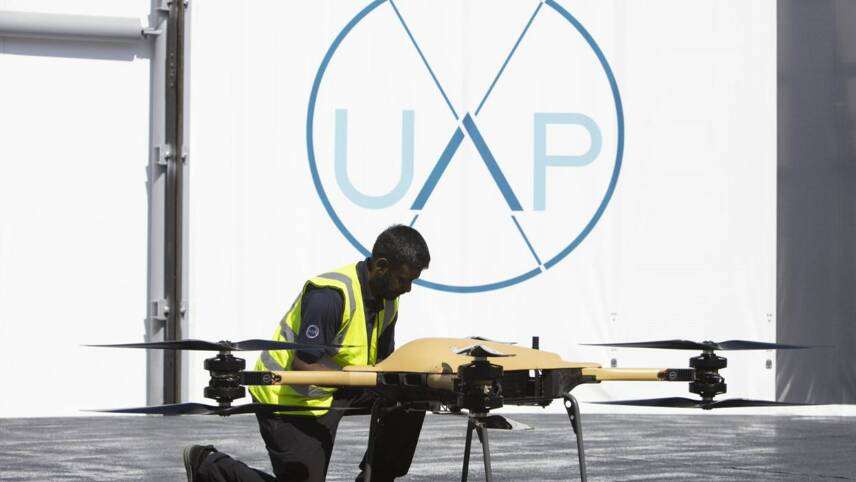Register for free and continue reading
Join our growing army of changemakers and get unlimited access to our premium content

Image: Urban Air-Port / Greenhouse PR
The facility, called ‘Air-One’, was officially opened today (25 April) by operator Urban Air-Port – a company that was founded to design, develop and manufacture physical and digital infrastructure that supports new forms of sustainable air transport.
Urban Air-Port claims that Air One is the world’s first fully operational eVTOL hub. The 1,700-square-metre facility will operate in Coventry city centre for at least one month, with learnings from the demo set to inform the company’s plans for creating permanent vertical airports (vertiports) across the world. Urban Air-Port’s vision is to develop 200 vertiports within five years.
Technologies set to be showcased at the Coventry vertiport include high-speed, lightweight police drones, which could be used by local forces to modernise things like car chases and pursuits on foot. Heavy cargo delivery drones, capable of moving goods for sectors such as retail, healthcare and construction, will also be on display. These drones are being made by British brand Malloy Aeronautics and are the largest of their kind to undergo real-world trials to date.
Urban Air-Port is working with organisations including the West Midlands Police, Skyfarer and Coventry University to deliver the Air-One demo. It has also secured a number of funding partners, including the UK Government’s UK Research and Innovation (UKRI) agency and mobility service specialist Supernal, which is owned by Hyundai. This partnership approach will be replicated when Urban Air-Port brings other vertiports online in the UK in the coming years.
“Air-One serves as a valuable, tangible asset to helping build stakeholder confidence and trust in emerging mobility technology and supporting systems,” said Supernal’s chief commercial officer Mike Whitaker.
“The Coventry demonstration is an important first step forward to reimagining how people across the world will move, connect and live. Developing a scalable system to support advanced air mobility operations requires collaboration from all industries and corners of the world.”
By some estimations, the advanced air mobility market could surpass $12.4bn by 2027 and $1trn by 2040, with exponential growth driven by the transition to net-zero. Flying electric taxis will contribute to the growth of the market as well as drones, but they are generally a less mature technology.
Keen to ensure that the UK benefits from this market growth, the UK Government is funding a range of projects in this space. Aside from Urban Air-Port, the Industrial Strategy Challenge Fund last year provided funding to more than 40 organisations, through the Future Flight Challenge programme.


Please login or Register to leave a comment.